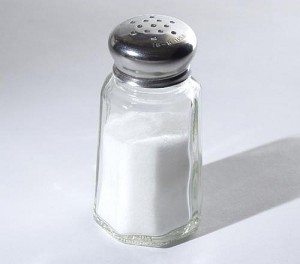When Should You Be Most Skeptical?
We all know how important it is to be a critical thinker, especially so today, when we are deluged with so much misinformation and it seems like we are being sold almost every single minute. That’s why most of us find it easy to turn on our skeptical radar whenever someone we don’t know pitches us with an idea that’s a little different or seems too good to be true.
But, in terms of cognitive resources, skepticism and critical thinking are expensive. It’s mentally exhausting to be on your guard at all times. According to what Daniel Kahneman calls the law of least effort, we gravitate to the easiest thinking path when we can. So, it’s tempting to simply trust and accept what the other person is saying.
Trust is comfortable. Trust is a shortcut. And trust that is built up through long years of familiarity and experience with someone is can be an extremely reliable and useful shortcut. In fact, unless you’re on a desert island somewhere, it’s impossible to live without it.
The problem is that we generally overestimate our ability to accurately size people up and determine their trustworthiness. Regardless of how smart we think we are, we use shortcuts to form our judgments of trust.
We’ve heard the phrase that Reagan made famous: “trust but verify”. But while trust is comfortable, verifying is hard. And sometimes, that comfort gets us into trouble.
Crafty persuaders know this, and they work hard to establish the conditions to relax our skepticism. Bernie Madoff belonged to the right organizations, he gained trust vicariously through word of mouth, and he worked hard to produce the bogus results for so long.
But the crafty persuaders may be the least of our worries. It’s the sincere persuaders, who truly believe in what they’re selling, that can get us into the most trouble. We may need our skepticism more than ever, not only to keep from going down the wrong path but to save others from themselves.
Here’s where I’m conflicted. I strongly promote all the things that make for successful persuasion: passion, stories, credentials, etc. But none of those factors, or even all of those factors combined in one package, guarantee that it’s a good idea. Whenever the following ingredients are present, remind yourself to dial up the skepticism:
Passion. I put this number one, because when someone is passionate about what they do, they almost always ignore any contradictory evidence or differing interpretations.
Stories. I love stories just as much as anyone else. Stories suck you in, and get you to suspend your disbelief. Of course, good stories don’t mean the person isn’t telling the truth, but remember that the plural of anecdote is not data.
Credentials. They are generally a reliable guide to credibility, but watch the limitations. Peyton Manning is a great quarterback, but that doesn’t mean I trust his taste in pizzas. Besides, if the person speaking is highly important, they may have cut corners themselves, because they have grown too accustomed to being believed because of who they are.
Confidence. As pack animals, we respond to outward shows of strength, and when we reflect that confidence back to the speaker, it just reinforces it. It never hurts to scratch beneath the surface by asking a tough question.
Evidence. Pay attention to the diagonals. When someone says that successful companies did these three things, have they said anything about the companies that did those three things and failed, or the companies that did not do those three things and did succeed?
Optimism. I learned early in my banking days to use the borrower’s worst-case projections as my best case. An engineer in my Precision Questioning class once taught me that any projection that looks like a hockey stick on a graph is wrong.
When you’re selling your ideas, every one of those ingredients can help. When you’re being sold, every one of those ingredients should be taken with a pinch of salt.




